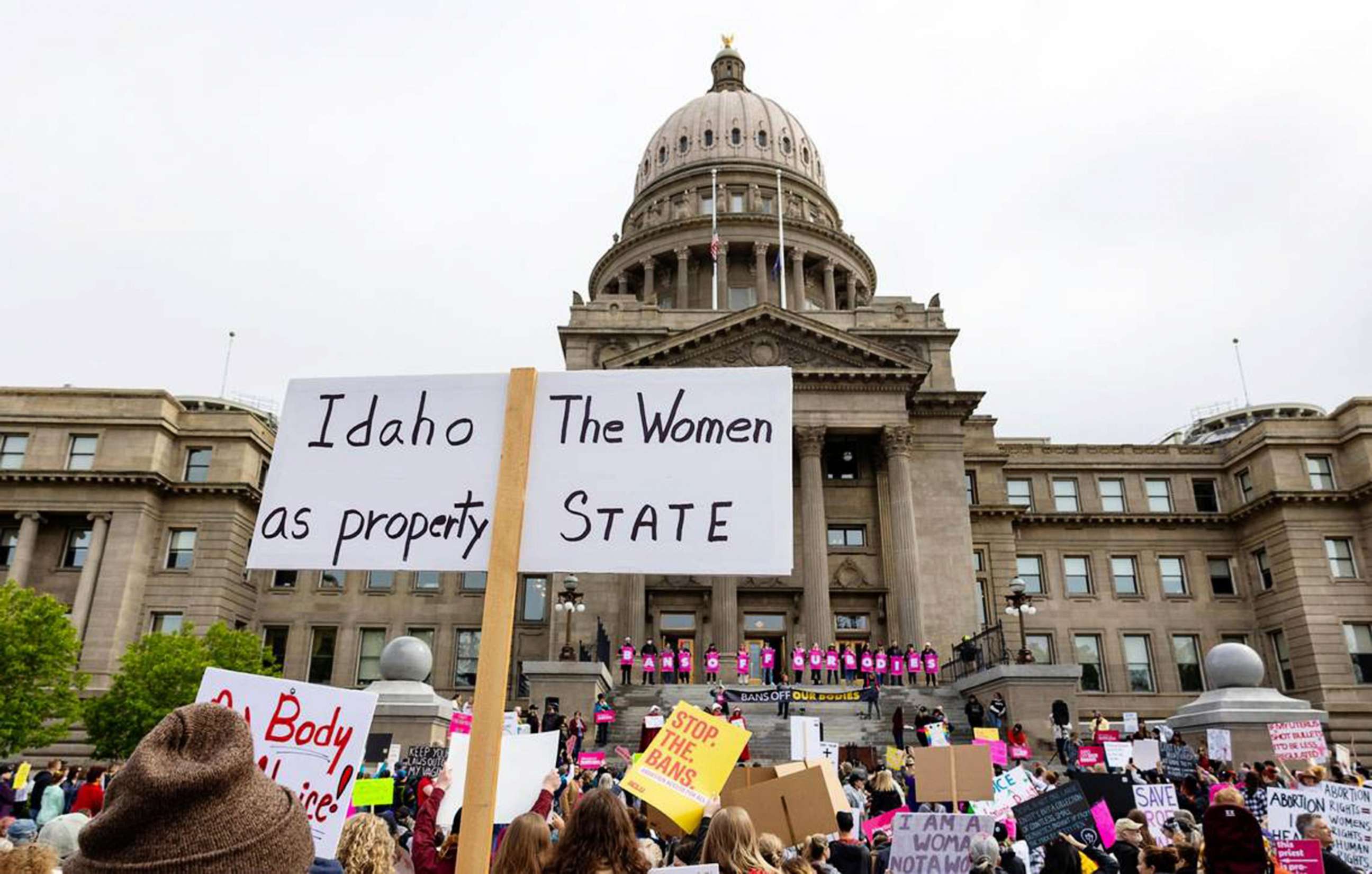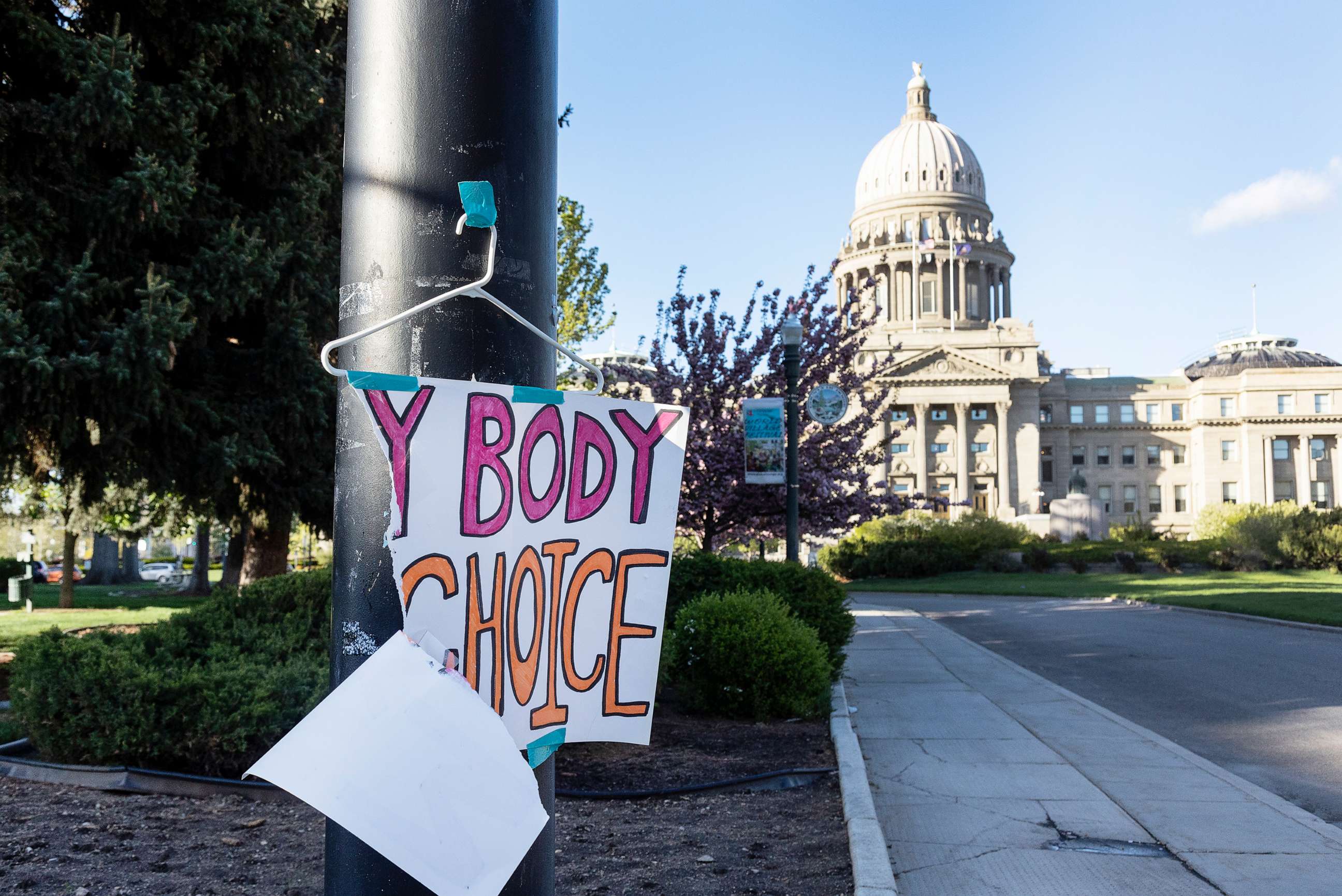Idaho bill would criminalize 'abortion trafficking' of minors traveling out of state
The bill passed in the House and is set to be voted on by the Senate.
A new Idaho bill would make it illegal to aid minors in traveling across state lines for abortion care while concealing it from their parents. The proposed bill is set to be voted on by the state Senate.
The proposed bill names a crime called "abortion trafficking," which criminalizes any adult who aids or obtains abortion pills for a minor in another state while seeking to conceal it from their parents or legal guardians.
Nearly all abortions have been banned in Idaho, with exceptions for medical emergencies, rape and incest. However, women are required to file a police report and show it to the medical provider before they can get abortion care in cases of rape or incest. The state also requires parental consent or notification for minors seeking abortion care, according to the Guttmacher Institute.
The bill makes it a crime for any adult to procure or obtain abortion pills for a pregnant minor "by recruiting, harboring, or transporting the pregnant minor within this state" while intending to conceal the abortion from the pregnant minor's parents or guardians, according to the bill.
Anyone found guilty of committing abortion trafficking could face from two to five years in state prison.

The proposed bill passed through the Idaho House of Representatives earlier this month with a 57 -12 vote. If approved by the state Senate, it heads to Gov. Brad Little's desk for approval before it can become law. A representative for Little declined to comment on the bill or if Little would sign it into law.
The bill would also allow civil lawsuits to be brought by the family of the minor who sought the abortion care or the father of the fetus. Civil suits could also be brought against medical professionals who provide abortion care, asking for at least $20,000 in damages.
Last week, an Idaho hospital announced it will end labor and delivery services in part due to the "political climate."
Last June, Little celebrated the U.S. Supreme Court decision to overturn Roe v. Wade, ending federal protections for abortion rights.
"I join many in Idaho and across the country today in welcoming the high court's long-awaited decision upholding state sovereignty and protecting pre-born lives. The decision provides clarity around landmark cases at the center of passionate debate in our country for nearly five decades. This is now clear – the ‘right’ to an abortion was a judicial creation," Little said at the time.

The high court's decision paved the way for an anti-abortion trigger law approved by Little to go into effect last summer.
"Abortion is not a right expressed in the U.S. Constitution, and abortion will be entrusted to the states and their people to regulate," he said.
Idaho's six-week abortion ban is one of the strictest in the country. As part of a lawsuit filed by the U.S. Department of Justice, a judge blocked part of the ban in August that would have prohibited providers from providing abortions in medical emergencies.
Little criticized the lawsuit, which he claimed is "interference with Idaho's pro-life law and another example of Biden overreaching yet again," he said in a statement in August.
"Here in Idaho, we are proud that we have led the country in protecting pre-born lives. I will continue to work with Attorney General Lawrence Wasden to vigorously uphold state sovereignty and defend Idaho’s laws in the face of federal meddling," Little said.




